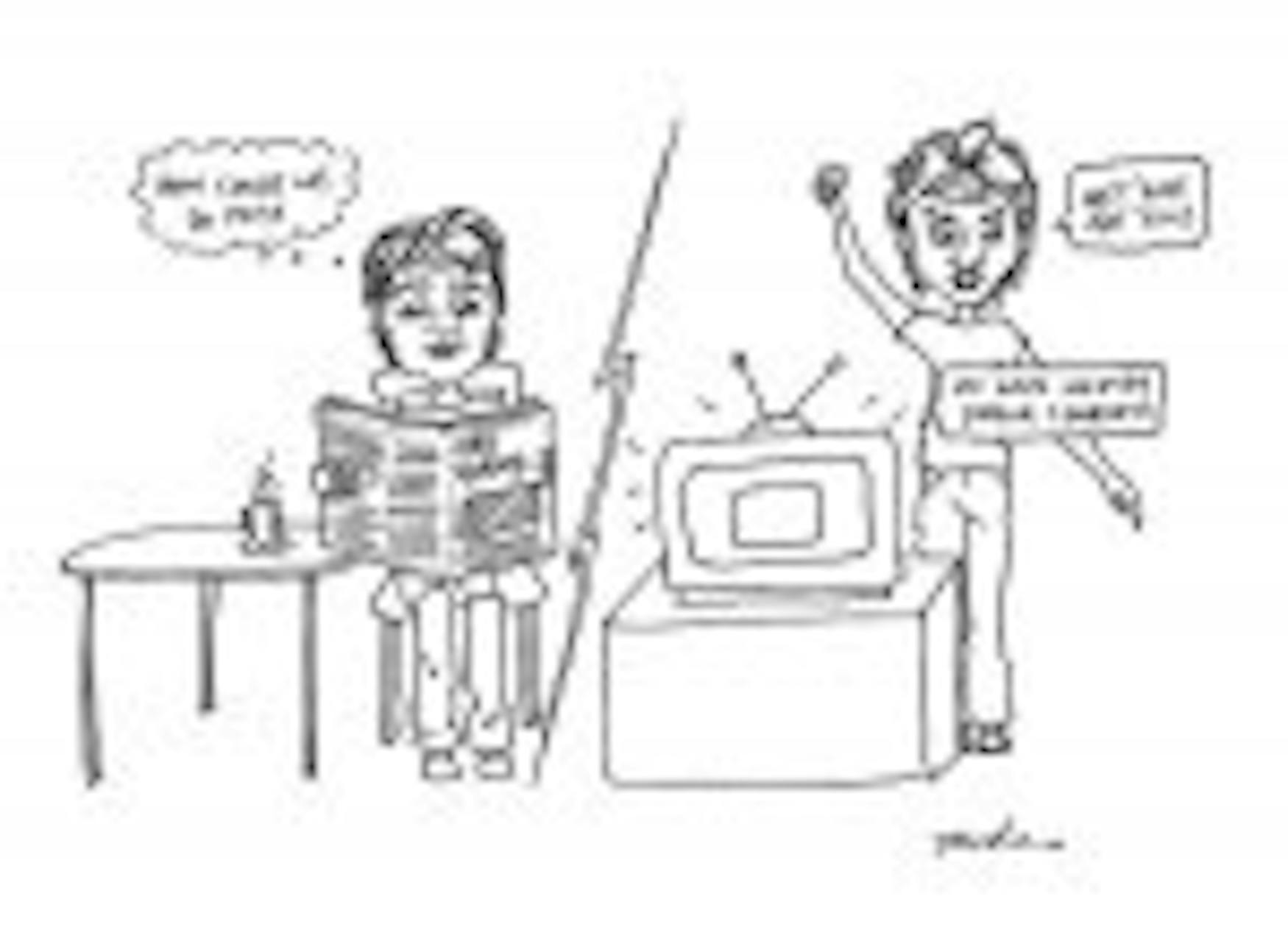Reaction to Boston bombing proves morality to be subjective
The bomb squad trucks sped, sirens blaring, through our innocuous, earthy-crunchy streets, and most of us could think only one thought-kill him. Last April, bombs went off at the Boston Marathon, killing three people and injuring an estimated 264 others.
The alleged bombers, Dzhokar and Tamerlan Tsarnaev, went to the same high school as me. Shortly after the bombings, a police officer was killed 50 feet from where I had eaten a burrito the day before. The car chase that followed was through the streets I grew up on; I heard the explosions of the make-shift bombs thrown during the pursuit as I biked home that night. A picture surfaced on my Facebook newsfeed of a friend of mine from school surrounded by 20 FBI officers, their guns pointed at him-he was Dzhokar's neighbor. About halfway through the chase, Tamerlan was killed, but Dzhokar got away, and the chase continued. Kill him. All of us were scared in liberal Cambridge.
All of us who picketed the U.S.'s torture of Iraqis in Abu Ghraib, the infamous American war prison, just a couple of years ago were now glued to the TV and online news feed. We huddled in living rooms and neighbors' houses for hours on end, yelping with excitement every time we thought the police might have killed Dzhokar. We were peace-loving when the war was overseas, but not when it was on our streets. When Dzhokar was finally detained (alive, but with gunshot wounds on his head, neck and hands) everyone cheered; mission accomplished, we got him. We celebrated our police's accuracy in killing Tamerlan early on, and some of us even celebrated Dzhokar being alive because we thought death was too quick and easy. Our non-violent values were tried and proved to be conditional. Our disgust with the national security budget quickly turned into appreciation when hundreds of police and FBI officers swarmed our streets. Our liberal values proved to be privileged, existing only because we had never had to be afraid before.
Right, wrong, moral, immoral, secure, paranoid-the distinctions are entirely conditional. Because I grew up in a place where I was never afraid that a bomb would go off on a bus or train, I would have cried "dictator" and "imperialist" if I ever had to walk through a metal detector in the subway station. But what if buses and trains were being blown up? Would I still think that it was an infringement on my privacy or liberties? Are we capable of unconditional feelings?
In the infamous Stanford University prison experiment from 1970, 24 male students were selected to participate in a mock-prison scenario. They were each randomly assigned the role of either prisoner or guard. The experiment spiraled out of control within days; prisoners were subjected to psychological torture, among other things, and the experiment had to be shut down preemptively. Everyday people turned into monstrous jail guards, no better than those at Abu Ghraib. In Cambridge, we looked at Abu Ghraib and said that our soldiers were immoral. What do we say when we look at ourselves?
The people selected for the Stanford prison experiment (though it was a small sample) were just college students, no different from most of us. Are we all monsters because we're capable of the same things? How much of ourselves is inherently "bad" and how much is inherently "good"? How much is just human, susceptible to what's going on around us? Would we all have been the admirable abolitionists in slave times? Would we have been the slave owners? Can we even predict who or what we are?
I believe in non-violence as much as I believe in any social justice. But if I wasn't steadfast in my values now, could I have held on to any similar values in different situations? I'd like to think that I'd have been a freedom fighter in slave-time America, Nazi Germany or Rwanda not even 20 years ago, but the hard truth is that I wouldn't have been. Many argue that Dzhokar deserves the death penalty, or worse. It absolutely terrifies me that while I disagree logically, I agree emotionally. I do not object to people condemning Dzhokar's life. I do not object to myself feeling the same, even though I tried to hide it. I'm no philosopher king, but I'm no monster either. I'm just like you.
*



Please note All comments are eligible for publication in The Justice.